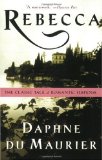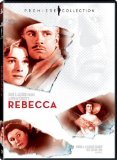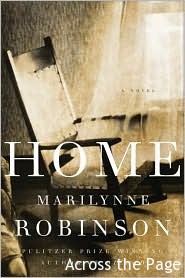Rebecca
 I’m not sure what made me choose Daphne DuMaurier’s Rebecca. I was looking for a page-turner, and that’s what I found in this suspenseful tale of an innocent bride, the wealthy nobleman who marries her, and the mystery and emotional charge that overshadow everything associated with his first wife, the deceased Rebecca.
I’m not sure what made me choose Daphne DuMaurier’s Rebecca. I was looking for a page-turner, and that’s what I found in this suspenseful tale of an innocent bride, the wealthy nobleman who marries her, and the mystery and emotional charge that overshadow everything associated with his first wife, the deceased Rebecca.
I seem to have a weakness for Gothic romance: Jane Eyre, Watchman’s Stone, The Red Castle Women. All of them have working class heroines drawn into a world of Gothic castles, noblemen with mysterious pasts, and malevolent or mad women that come with the bargain. Is my life too prosaic? Do I have latent anxieties that there are hidden passages in my 70’s vintage ranch?
Or is it just that I can’t resist revisiting this plot that can be varied in so many ways?
The narrator heroine of DuMaurier’s novel is… more of a ninny than those of the other books I mentioned. Jane Eyre is terribly smart. The other two heroines are depicted as intelligent, yet they unaccountably do foolish things that get them into strange situations: locked into the keep of a castle, kidnapped, all manner of things. DuMaurier’s narrator (whose name we’re never told) spills things, trips, knocks things over, and can’t seem to put two and two together to save her life. Yet somehow, I found myself drawn in and held in suspense as the mystery unfolded.
 After I finished the book, I searched for Alfred Hitchcock’s 1941 film version, his first American movie, which won Best Picture in the Academy Awards. It stars Laurence Olivier as Maxim deWinter and Joan Fontaine as the novel’s narrator. Despite its fame, I couldn’t find it anywhere but in one branch of our four-county library system.
After I finished the book, I searched for Alfred Hitchcock’s 1941 film version, his first American movie, which won Best Picture in the Academy Awards. It stars Laurence Olivier as Maxim deWinter and Joan Fontaine as the novel’s narrator. Despite its fame, I couldn’t find it anywhere but in one branch of our four-county library system.
I loved seeing the sumptuous Manderley, the deWinter estate on the coast of England. Even in black and white it gave my imagination a boost in picturing the setting. Olivier’s portrayal of Maxim deWinter made him much more appealing to me than the moody, grim figure I pictured from the pages of the book.
Hitchcock made some key changes in the story’s plot, partly to simplify and condense the novel for the screen, and partly (perhaps) to soften some of its harsher elements. But Mrs. Danvers, the malevolent housekeeper at Manderley, is played with absolute brilliance by Judith Anderson. She’s terrifying! And she does it all with her eyes.
I enjoyed experiencing the novel and movie in sequence like that. I felt I got acquainted with two artists and two classic works at once. Despite Hitchcock’s genius, though, I came down on the side I always do: I liked the book best.


